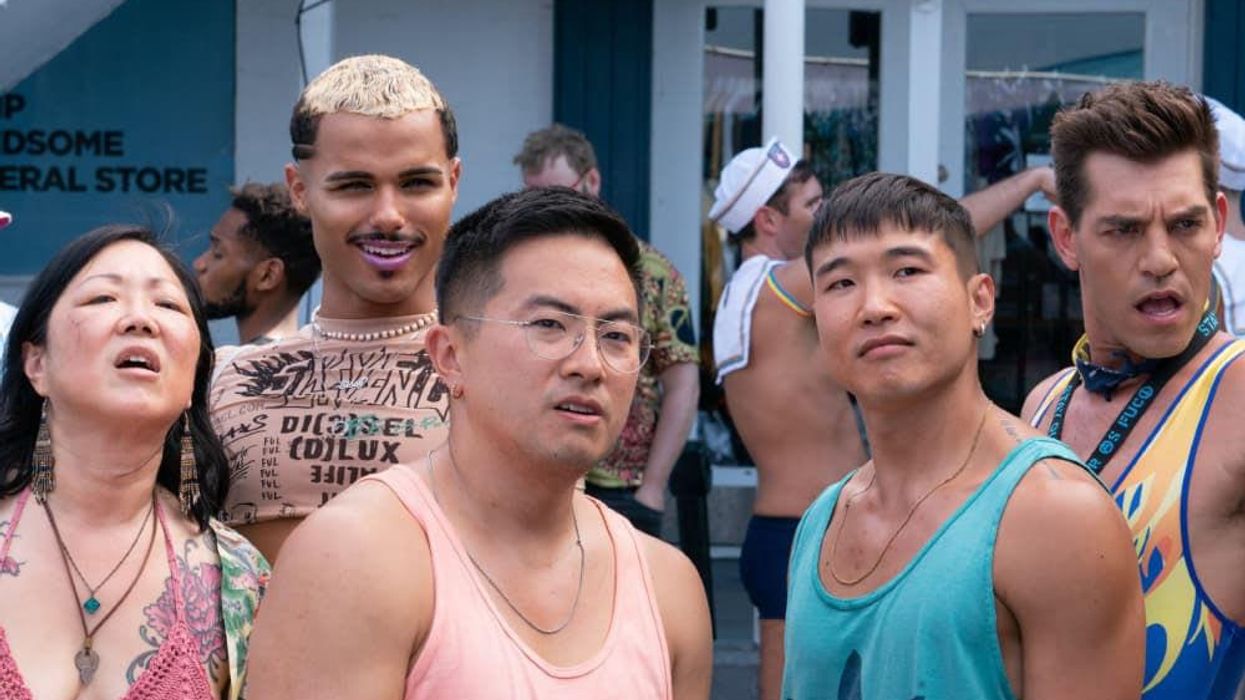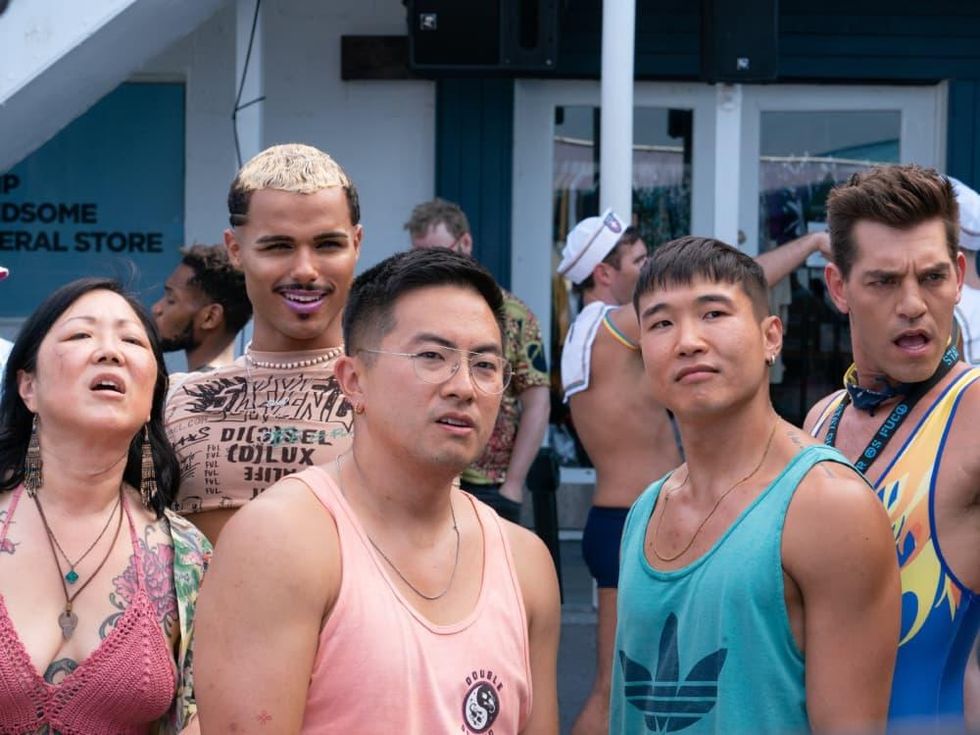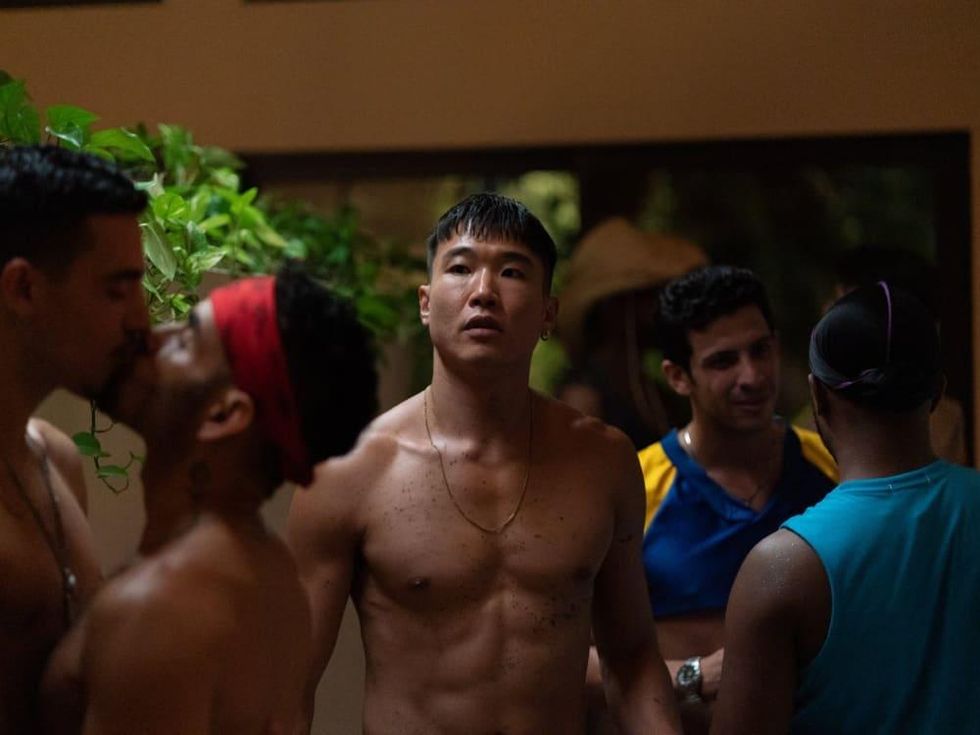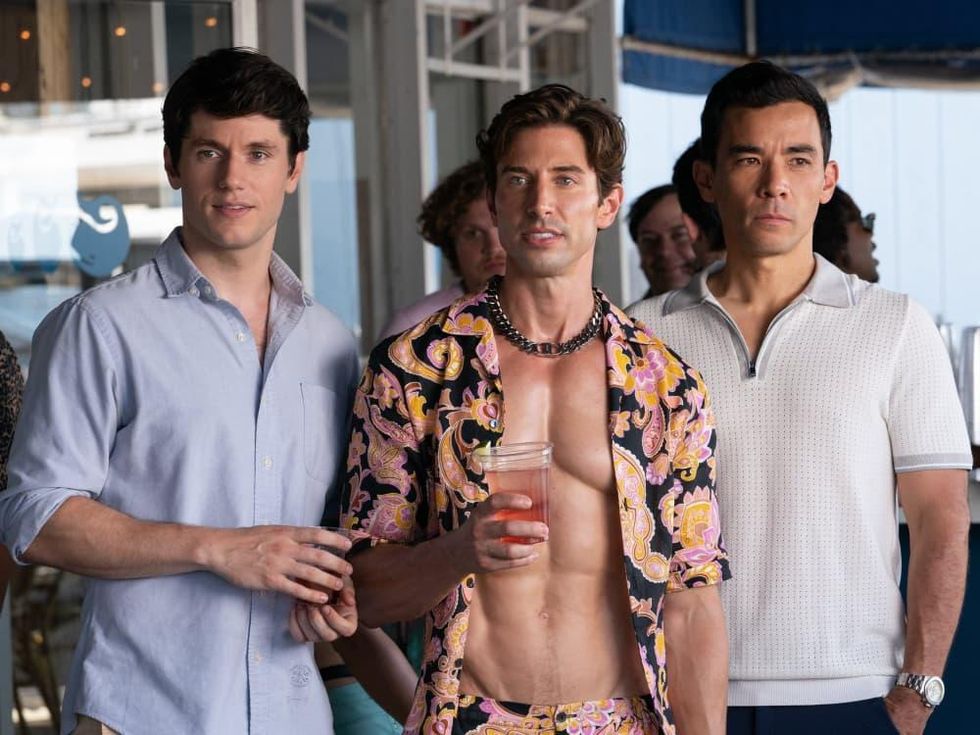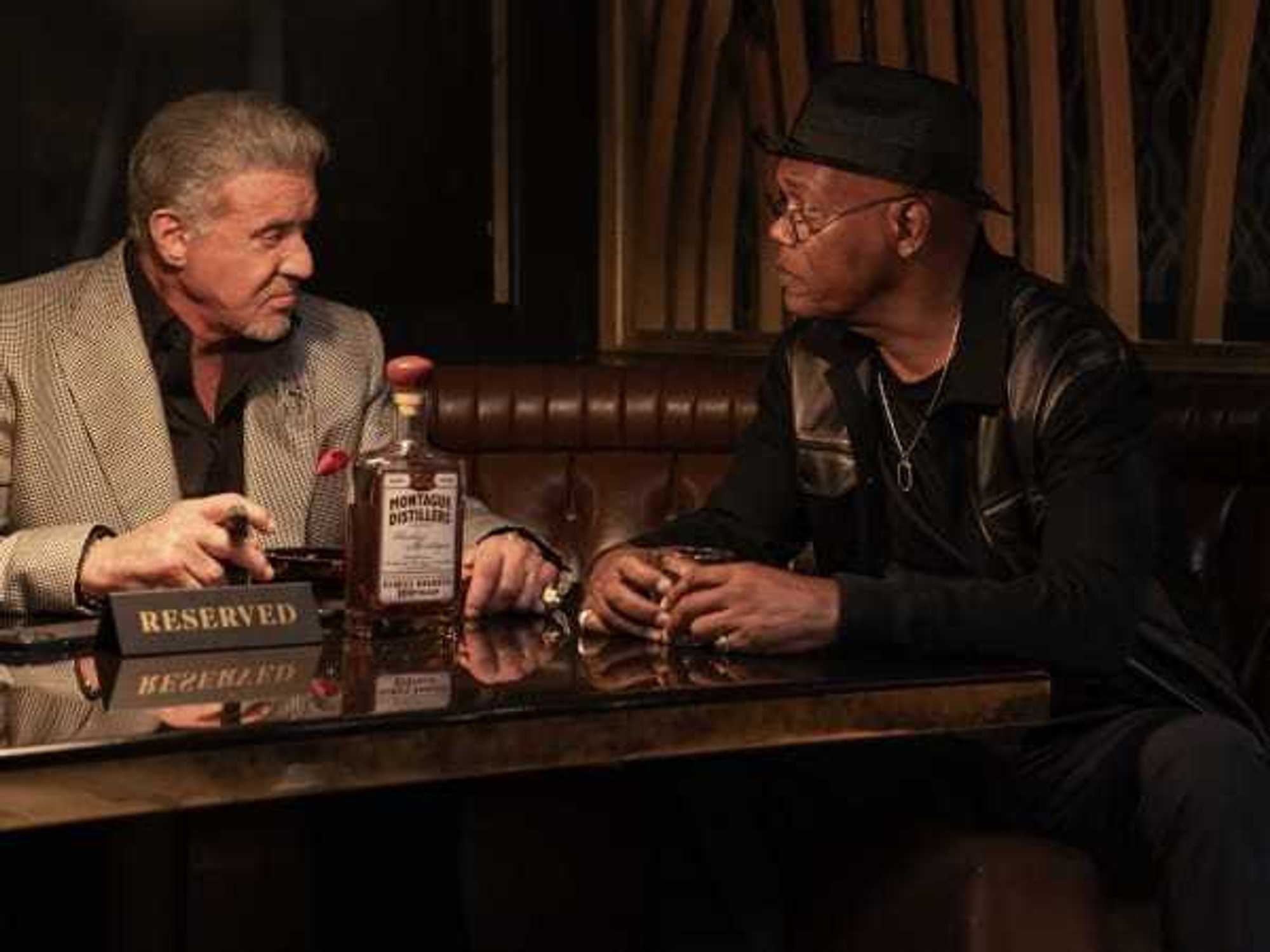Movie Review
Gay-centric Fire Island hilariously rejects and reinforces rom-com stereotypes
Unlike more repressed periods in history, it is no longer taboo to have gay characters in major movies. And while the number of lead characters who are LGBTQ+ has steadily increased in recent years, few mainstream films have centered their story around gay culture. If the new Hulu film Fire Island and the upcoming Bros are any indication, 2022 appears to be the tipping point for those kinds of stories.
Fire Island centers on a group of friends who are taking their annual trip to the titular location, situated just south of Long Island in New York. Noah (Joel Kim Booster) and best friend Howie (Bowen Yang), along with Keegan (Tomas Matos), Max (Torian Miller), and Luke (Matt Rogers), always stay at the house of their friend Erin (Margaret Cho).
The week they go to Fire Island is kind of like spring break and Mardi Gras mixed into one for the gay community, with men coming from far and wide to let loose and hook up. Noah, who has a freer attitude about sex than Howie, is determined to find his friend a one-night stand while they are there. One such man, Charlie (James Scully), appears to be a good prospect, but it’s Charlie’s friend Will (Conrad Ricamora) who ends up complicating matters for Noah himself.
Directed by Andrew Ahn (Driveways) and written by Kim Booster, the film alternately repudiates and reinforces the stereotypes of romantic comedies. On one hand, the idea of monogamy seems to be anathema to nearly everyone in the film, with some characters switching their interest in other men at the drop of a hat. On the other hand, the filmmakers clearly follow the rom-com rules of two people hating each other at first only to realize how much they like each other later, something that’s been a staple throughout film history.
If you weren’t already comfortable with the sight of glistening, half-to-totally-nude men, the film forces you get there quickly. Almost from the moment the group steps on the ferry to get to the island, shirts become optional. Every get-together/party throughout the week adheres to the same dress code, and there are even glimpses of men having sex that goes beyond what’s typically been shown in previous gay-centric films.
But even as they immerse the audience in this one aspect of gay culture, the filmmakers do a great job of establishing the two main friend groups in the movie. They use several hilarious recurring jokes, set up a couple of mildly villainous characters, and keep the dynamics light while still allowing for some conflict. Not all of it is 100 percent believable, but because they take the time to get to know the important people in the story, everything the characters do is relatable.
The film also takes on race and class issues to a certain degree. There are a few scenes that address the “otherness” of Noah and Howie, who are both Asian, further showing their bond in a world that is dominated by white men. The difference between the haves and the have-nots on Fire Island is demonstrated in the types of houses and parties different groups have at their disposal, but the filmmakers never choose the heavy-handed route in those scenes, either.
Kim Booster is a stand-up comedian who’s been building up a nice acting career in the last few years. This is by far his highest profile role to date, and he knocks it out of the park. Yang, who’s quickly become one of the go-to cast members on Saturday Night Live, is equally good, especially because his role is toned down from the ones he plays on SNL. All of the supporting actors do well, but Cho, Ricamora, and Matos make the biggest impressions.
Every character in Fire Island is gay and thankfully none of them are saddled with any drama beyond the romantic/sexual ones they cause for themselves. The film plays out in similar fashion to other rom-coms you’ve seen before, but it stands out due to the characters and the big laughs they provide throughout.
---
Fire Island debuts on Hulu on June 3.
